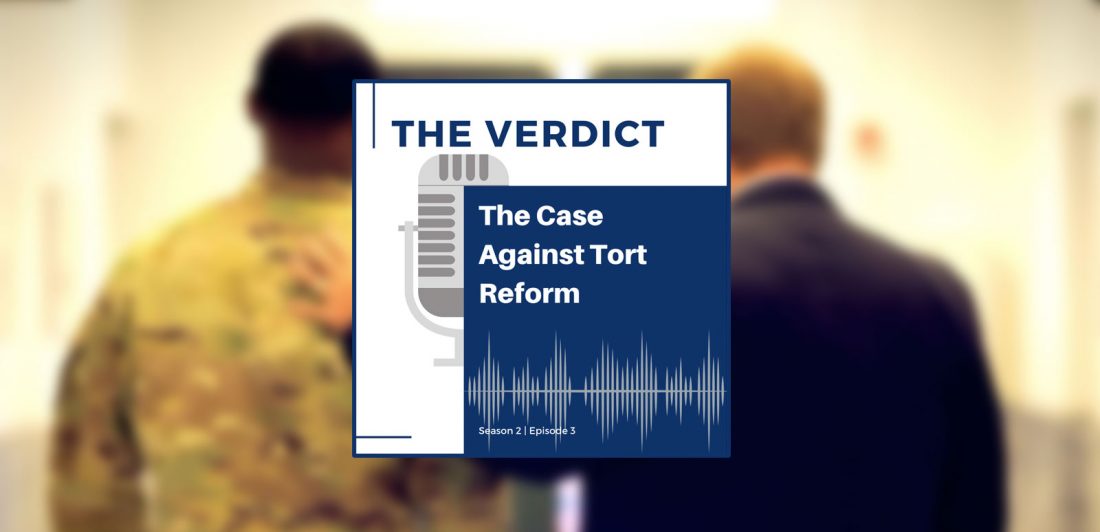Last week, on The Verdict we discussed medical malpractice caps with Carlson Law Firm partner, Todd Kelly. And over the summer, we released an episode with an exclusive interview with Of Counsel attorney to the Carlson Law Firm, Reed Morgan. This week, we sit down with Reed Morgan again to discuss just how tort reform has impacted your ability to file a lawsuit in your search for justice.
It might seem as though we’re harping on this topic, but it’s really important to understand your rights. The simple fact is tort reform hasn’t really done a lot of good for the average American. In fact, many in the legal field would argue that tort reform has actually eroded the 7th Amendment.
For Texas, tort reform happened in 2003. One of it’s selling points from both national and state politicians was that it was supposed to help drive the costs of healthcare down. But it didn’t actually do anything to curb the rising costs of healthcare. Employer contributions have risen slightly, however, the cost of healthcare continues to climb each year. The reality is that the United States has one of the highest costs of healthcare in the world.
While one of the most obvious effects of tort reform is the caps on non-economic damages in medical malpractice claims, tort reform has actually had far-reaching implications.
Are frivolous lawsuits a concern?
There are a few truths about our legal system. First, if you have the money and time, you can sue anybody for anything. Secondly, there are litigious people and unethical attorneys who will bring lawsuits on their behalf in spite of the evidence. And finally, there are people out there who try to game and abuse the legal system for their own personal gain—whether it be to save face for their own bad actions or for monetary gain.
Fortunately, there are protections built into the law that protect you, me and businesses from lawsuits that are without legal merit. In this week’s episode, Reed Morgan explains:
- Why frivolous lawsuits aren’t a concern.
- The checks and balances that exist in the courts to keep meritless claims from receiving major payouts.
Attorneys have a duty to assess a case and keep meritless lawsuits out of the courts. If they fail to do so, attorneys can be sanctioned by the courts for helping these people abuse the court system and wasting the court’s time. Further, if a meritless case does manage to make it to trial and goes in the defendant’s favor, a defendant can file a lawsuit for malicious prosecution. For repeat offenders, judges can forbid a litigious person from filing lawsuits without court approval.
For these reasons, the idea of the imaginary Frivolous Lawsuit monster is, well, imaginary. The checks and balances that exist in the American legal system keep these lawsuits from clogging up our courts.
When a lawsuit makes it through these checks and balances and is heard by a jury of peers who then renders a verdict, it’s because that lawsuit deserved to make it there.





